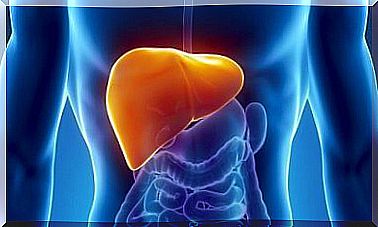The Effect Of Sugar On The Organism
Even if sugar is fundamental for the body, after reading this article you will understand why you should limit consumption and, if necessary, change your diet.

While sugar is important for the body, too much of it can cause various serious health problems. In today’s article, we’re going to take a closer look at the effects sugar has on our bodies.
Sugar is not only a pleasure for the palate, it is also vital. But it is a double-edged sword that can also cause great damage to health.
It is therefore worthwhile to be sufficiently informed about this topic. Then learn more about the effects of sugar in our organism.
Effect of sugar on the organism

Your pancreas receives the signal that the body has taken in food and starts producing insulin. This hormone makes the cells more receptive to glucose. Special glucose transporters are necessary to get into the cells.
Carbohydrates are therefore essential to stay active and vital. But the right amount is crucial, because too much of it makes you sick.
Dishes such as pizza, pasta or desserts contain a high proportion of carbohydrates. This means that with it the blood sugar level rises. If this is too high, it is called hyperglycaemia. However, that doesn’t mean that your body has more energy to use.
Effects of sugar in abundance

Too much sugar leads to diseases such as type 2 diabetes. The pancreas does produce insulin, but the cells are no longer able to absorb it properly and develop resistance to the hormone.
What are the consequences? Your body can no longer absorb glucose and you feel tired all the time.
But the effects of sugar can be felt in different ways. This also changes the pH of the blood, which has a negative impact on various body systems.
It also makes you more prone to infections. When organic acids build up in the blood, there is also a risk of ketoacidosis.
In addition, other serious harms from too much glucose can occur:
- Weight gain: The liver converts excess energy into adipose tissue, which can lead to being overweight or obese.
- The brain is also severely affected by high blood sugar levels, as it reduces neuroplasticity. In extreme cases, performance can be reduced so much that those affected fall into a coma.
- As the kidneys filter pollutants from the blood, they are overloaded. This could lead to kidney disease or kidney failure if the condition persists for a long time. This leads to a strong thirst and a frequent need to urinate. These are the main signs of hyperglycaemia.
- The tissue is also generally at risk because this process accelerates cell oxidation.
- It is rarely mentioned that this process also has a negative effect on the emotional state, as it leads to brain changes. Affected people are more irritable and in a bad mood.
Do not forget that your organism is always looking for balance, otherwise your well-being is in danger. You should therefore reduce your sugar intake. In general, eat a healthy diet and exercise regularly!









